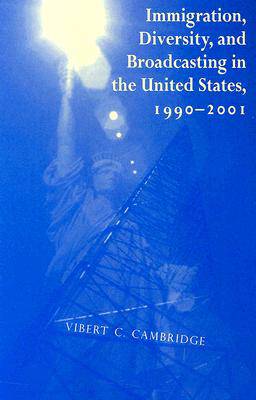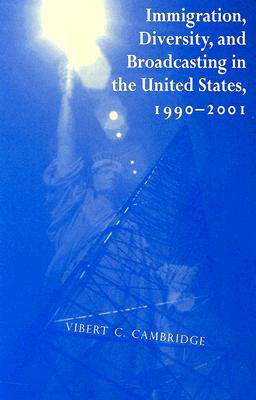
- Afhalen na 1 uur in een winkel met voorraad
- Gratis thuislevering in België vanaf € 30
- Ruim aanbod met 7 miljoen producten
- Afhalen na 1 uur in een winkel met voorraad
- Gratis thuislevering in België vanaf € 30
- Ruim aanbod met 7 miljoen producten
Zoeken
Immigration, Diversity, and Broadcasting in the United States 1990--2001
Volume 2
Vibert C Cambridge
€ 41,95
+ 83 punten
Omschrijving
The last decade of the twentieth century brought a maturing of the new racial and ethnic communities in the United States and the emergence of diversity and multiculturalism as dominant fields of discourse in legal, educational, and cultural contexts. Immigration, Diversity, and Broadcasting in the United States, 1990--2001 is a contribution to our understanding of the web of relationships that existed at the intersection of immigration, race, ethnicity, and broadcasting in America during this period. Professor Vibert C. Cambridge investigates and questions how broadcasting in the United States responded to the changing racial and ethnic composition of the society. What patterns could be drawn from these responses? What roles were served? What roles are currently being served? What stimulated the changing of roles? Ultimately, Immigration, Diversity, and Broadcasting in the United States evaluates the performance of the American broadcasting industry. The answers to this book's core questions provide insights into how the American broadcasting industry responded to freedom, equality, diversity, information quality, social order, and solidarity at century's end.
Specificaties
Betrokkenen
- Auteur(s):
- Uitgeverij:
Inhoud
- Aantal bladzijden:
- 408
- Taal:
- Engels
- Reeks:
Eigenschappen
- Productcode (EAN):
- 9780896802360
- Verschijningsdatum:
- 30/12/2004
- Uitvoering:
- Paperback
- Formaat:
- Trade paperback (VS)
- Afmetingen:
- 147 mm x 214 mm
- Gewicht:
- 394 g

Alleen bij Standaard Boekhandel
+ 83 punten op je klantenkaart van Standaard Boekhandel
Beoordelingen
We publiceren alleen reviews die voldoen aan de voorwaarden voor reviews. Bekijk onze voorwaarden voor reviews.











